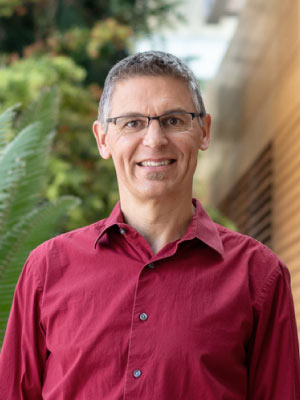
Department of Civil and Environmental Engineering professor and Nelson Institute faculty affiliate Paul Block has recently been named the Reid A. Bryson Distinguished Professor Chair for Climate, People, and Environment. The professorship, named after CCR’s founder, Reid Bryson, is a prestigious three-year appointment that provides financial support and leadership opportunities to bolster interdisciplinary research and leadership as it relates to climate change, the environment, and society.
“Professor Block is going to bring outstanding expertise and leadership to the Reid Bryson Distinguished Professorship through his vast and societally relevant experience in water resource management, risk and uncertainty quantification, and hydrological forecasting in support of decision-makers worldwide,” says CCR director Michael Notaro of Block’s nomination.
“I’m very pleased and honored to be selected and look forward to serving in this role. It’s a unique opportunity on a couple different fronts,” Block says, looking forward to expanding his connections both on campus and beyond. “Here at the UW, [I’m excited] to expand my network across both the Nelson Institute and also campus and better understand who fits into this broad landscape of climate, people, and environment.”
Block’s work has historically focused on the “climate and people” side of water resources management and disaster management. Having earned his master’s and PhD from the University of Colorado, Block came to UW–Madison in 2013 to join the College of Engineering as an assistant professor. He’s now an associate professor, teaching engineering classes like Decision-Making, Hydroclimatology for Water Resources Management, and Water Resources Systems Analysis. In addition to his affiliation with the Nelson Institute and CCR, he’s also connected to the Global Health Institute and Wisconsin Energy Institute.
Through the Department of Civil and Environmental Engineering, Block leads the water systems and society research group. “We focus quite a bit of our research effort on addressing hydro-climate variability, specifically seasonal forecasts. What do we anticipate the climate will be like next season in terms of precipitation or streamflow or water quality?” he explains. “We then link outputs from those models with people and the environment by asking, ‘How is that useful? What decisions can be made based on that information? Can stakeholders benefit from having long-lead probabilistic predictions?’ ” He shares an example from a recent research trip that he and a graduate student took to the Colorado River Basin — a hotspot for water resources management policy and research. “A reservoir operator allocating water toward irrigation or municipalities or downstream users has to decide how much and when to release,” he says. “If the operator has access to predictions of inflow months in advance, ideally that may enhance their allocation decisions. But the forecasts are never perfect, so how this uncertainty translates through to on-the-ground decision-making is also incredibly important.”
Another piece of Block’s research is applying similar models to disaster preparedness, particularly for flooding. “It’s really about triggering anticipatory action,” he explains. Recently, he’s been working with emergency managers across the upper Midwest and humanitarian organizations in South America to understand how they use climate forecasts in their planning — and if not, why. “While my disciplinary expertise is engineering, these challenges clearly go beyond engineering and climate science. We’ve been lucky to collaborate with many UW–Madison experts in life science communications and sociology and economics here on campus to better understand and connect some of the human dimensions,” Block says. “I’m excited to use this professorship to continue to advance interdisciplinary research with clear societal applications. In reality, this is critical to make real, meaningful strides forward.”
In addition to expanding his interdisciplinary network on campus, Block also looks forward to stewarding CCR’s Climate, People, and Environment Program — or “CPEP” — seminar series. These on-campus presentations are hosted weekly during the academic year, and feature lectures by both visiting experts and local faculty, scientists, and students. “We have so many excellent resources; so much talent and expertise across this campus. We want to be able to tap into this — not only to internally benefit, but also promote the Wisconsin Idea.”